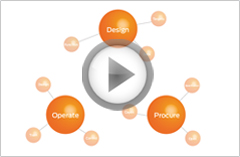Where is the innovation in CSR Reporting?
It seems that the growth in CSR reporting has attracted little innovation, and neither does it seem that it has created sufficient impetus to change the way in which buildings are operated in the drive to reduce carbon emissions.
http://www.guardian.co.uk/sustainable-business/csr-report-reporting-research-pwc
The Royal Academy of Engineers report: Engineering a low carbon environment, published in 2010, laments that buildings today perform little better than they did back in the 1990’s. Even the National Audit Office has expressed grave concern about the performance of the public building stock.
PWC advocates greater use of such reporting. But in reporting without corresponding corrective action, the environmental basis on which these businesses operate is highly questionable.
To quote Geoff Kendall, Development Director at SustainAbility:
“To prosper with any certainty in the long term, businesses must attain a level of organisational resilience and adaptability that can only come from embedding sustainability into their very DNA: every process, every product, every person…”
Embedding sustainability into every process, every product, every person…absolutely right. The significant implication here is the need for data integration between the different parts of the organisation. Accurate, verifiable reporting is just one step on a journey in the striving for sustainable prosperity. It is here at The Conclude Consultancy where we provide the tools not simply to measure performance, but tools that will perform the diagnostics across our customer’s facilities to analyse the opportunities for driving down carbon emissions in the organisation’s processes.
We believe that what is unique in what we do is to correlate business practice and the associated business performance measures with the resulting carbon impact. We achieve this by utlising powerful simulation technologies that enable organisations to experiment with alternative scenarios. We believe that this will lead to new innovation in CSR reporting so far as an environmental perspective is concerned. It will lead to a closer integration between business performance outcomes and the associated carbon impact of them. We are also exploring how we can use virtual reality technology to bring a new dimension to this aspect of sustainability. If we are to engage with people and cultivate changes in attitudes, then the day of the ‘enterprise dashboard reports’ are over – a ‘one size fits all’ type CSR reporting system does little to engage and inspire…innovation is needed, and this is what The Conclude Consultancy does best.
Professor Matthew Bacon
Tweet This

Follow us
on Twitter